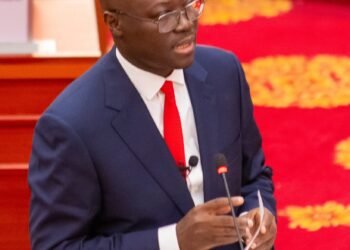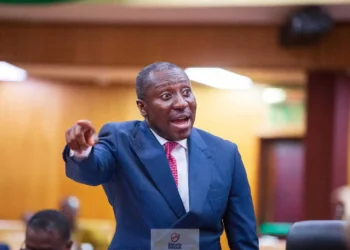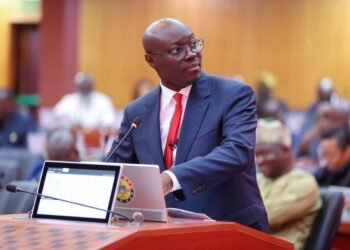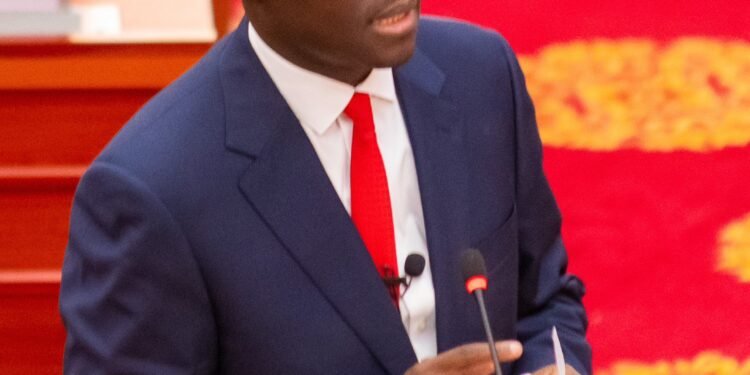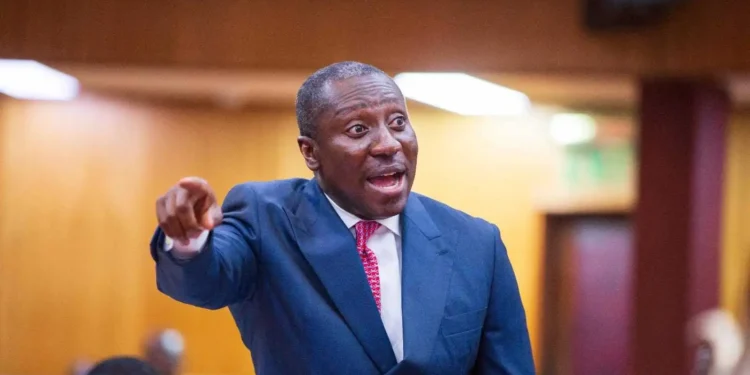At the Africa Growth and Opportunity—Research in Action (AGORA) Conference in Palermo, Italy, Ghana’s Vice President, Professor Naana Jane Opoku-Agyemang, presented a bold and comprehensive vision for the country’s economic transformation anchored on infrastructure and job creation.
Speaking on the theme “The Big Push: Infrastructure as the Job Multiplier,” she underscored that no country achieves industrialization without a strong foundation in infrastructure, noting that Ghana’s journey to inclusive growth and sustainable development depends on deliberate, coordinated investment in this critical sector.
“Our Big Push Initiative represents the most ambitious investment in infrastructure since Independence. It is the very scaffolding on which we are building a new social contract around jobs, skills, and dignity”.
Ghana’s Vice President, Professor Naana Jane Opoku-Agyemang
Professor Opoku-Agyemang explained that the initiative connects key sectors—energy, transport, housing, and digital infrastructure—into a unified strategy to accelerate economic activity and create jobs across all levels of society.
She elaborated that under the plan, infrastructure development will no longer be viewed only as a means to provide physical facilities but as a driver of employment and social empowerment.
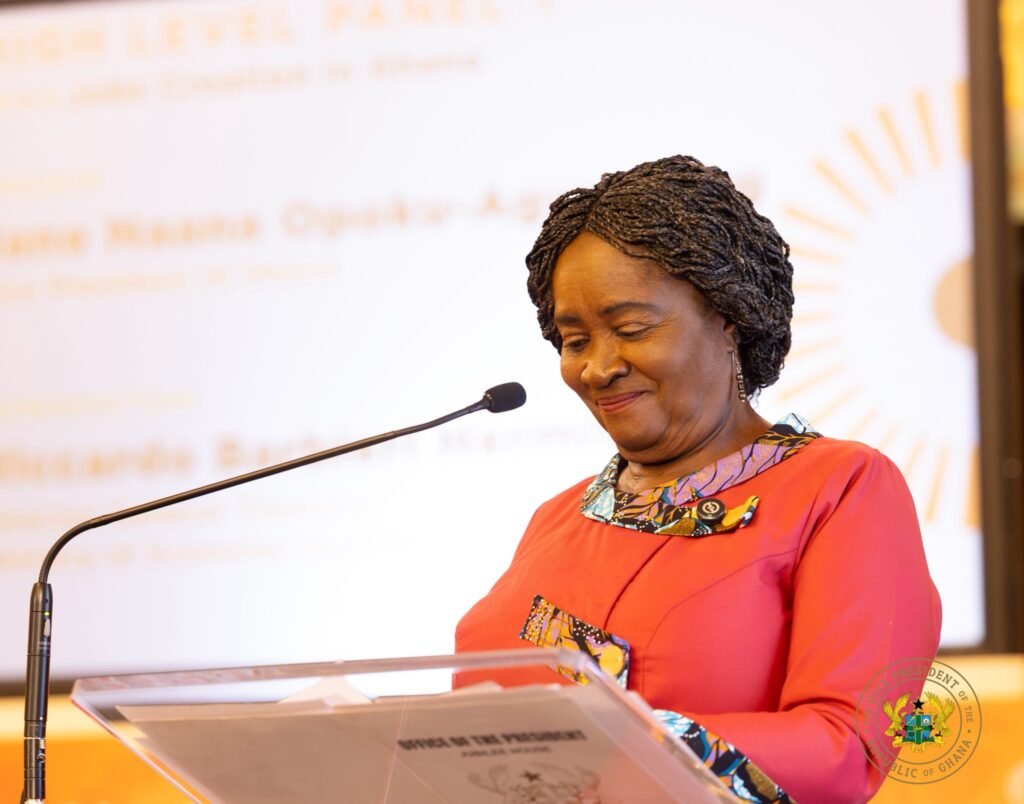
The goal is to ensure that each project generates both immediate construction jobs and long-term opportunities within the industries they enable.
Several Transformative Projects Underway
In outlining the key components of the Big Push, the Vice President highlighted several transformative projects already underway or in the pipeline.
Central to the agenda is the expansion of national rail corridors, particularly the Kumasi–Paga line, which she said will “open up the middle belt for trade and agriculture.”
By linking key production zones with ports and markets, the rail network is expected to significantly reduce transport costs, improve logistics, and stimulate industrial growth in previously underconnected regions.
She also noted the upgrading of port capacity at Tema and Takoradi, Ghana’s two major maritime gateways. These ports, she stated, “now handle record throughput and support integrated logistics for exporters,” helping to position Ghana as a competitive trade hub within West Africa.
With enhanced port efficiency, exporters—from cocoa processors to manufacturers—can move goods faster, reduce operational bottlenecks, and attract more private sector investment.
Energy, another critical pillar of industrial development, plays a major role in the Big Push strategy. Professor Opoku-Agyemang emphasized the government’s commitment to building renewable energy mini-grids to power industrial enclaves and rural communities.
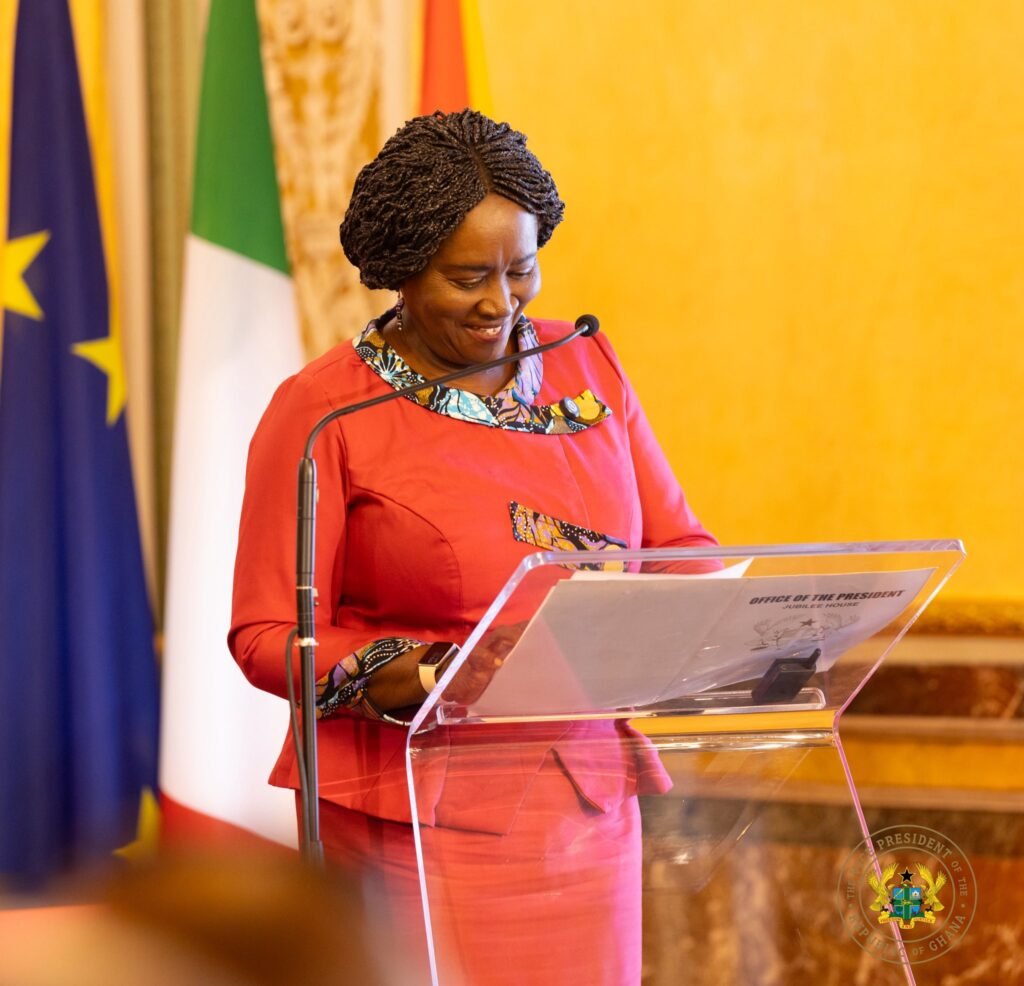
By expanding access to reliable, clean energy, the initiative seeks to empower small and medium enterprises (SMEs), enhance productivity, and support the transition to a green economy.
Another cornerstone of the Big Push is the Build24 program, which the Vice President described as a “smart public works initiative that combines infrastructure delivery with direct job creation.”
Build24
Build24 focuses on mobilizing skilled and semi-skilled workers—from masons and carpenters to digital technicians and engineers—in large-scale public infrastructure projects.
This model ensures that every cedi spent on public works translates directly into employment opportunities and skill development. Professor Opoku-Agyemang linked this approach to President John Mahama’s earlier vision of making Ghana “a construction site.”
She explained that the phrase symbolizes not just the physical transformation of the country’s landscape, but a broader social and economic renewal powered by work, innovation, and national pride.
“Indeed, this is precisely what President John Mahama was referring to when he said that Ghana would become a construction site.”
Ghana’s Vice President, Professor Naana Jane Opoku-Agyemang
However, the Vice President was quick to emphasize that “concrete alone does not build up a nation — people do.” She stressed that while infrastructure provides the foundation for development, it is ultimately Ghana’s people—especially its small and medium enterprises—that form “the backbone of our enterprise ecosystem.”
These businesses, she said, are the true agents of transformation, capable of turning infrastructure investments into sustainable livelihoods, innovation, and inclusive prosperity.
Throughout her address, Professor Opoku-Agyemang presented infrastructure not merely as an economic necessity but as a moral and social imperative—a tool to restore dignity through work and equal opportunity.

The Big Push, she asserted, “is about connecting people, places, and possibilities,” and ensuring that every Ghanaian, regardless of geography or background, has a fair chance to participate in the nation’s growth.
In her concluding remarks, she reaffirmed the government’s resolve to continue investing in strategic infrastructure that expands access to jobs and markets while laying the groundwork for long-term industrialization.
Professor Naana Jane Opoku-Agyemang’s message in Palermo resonated with a clear sense of purpose and continuity. It signaled Ghana’s determination to move from fragmented, project-based development to a cohesive national strategy—one that treats infrastructure as the heartbeat of transformation and jobs as the currency of dignity.
READ ALSO: Fuel Prices Drop Across Ghana as OMCs Implement Major Reductions




